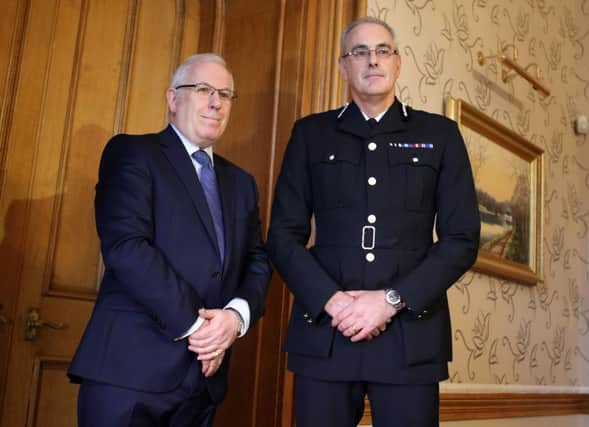Leader comment: Police watchdog must deliver on its promises


It would be an understatement to suggest that the bodies responsible for Scotland’s policing arrangements have not had their troubles to seek in recent years. But the candid account which played out before Holyrood’s public accounts committee yesterday suggests they are far from turning the corner.
In an evidence session that should prompt wide-ranging questions about the overseeing of the country’s national force, officials from the Scottish Police Authority (SPA) offered little in the way of reassurance that they are fulfilling their statutory functions.
Advertisement
Hide AdAdvertisement
Hide AdIt is only two months since Audit Scotland produced a damning report into the organisation tasked with holding Police Scotland to account, warning of an £85 million funding gap by 2018-19, incomplete records and insufficient leadership.
Yesterday, Andrew Flanagan, the watchdog’s chairman, offered promises that failed to convince many of the MSPs in attendance. A chartered accountant who has been at the helm of the SPA since last September, Mr Flanagan noted that many of the financial difficulties were a consequence of the move from eight forces – with their respective accounting functions – into one entity.
Few would deny that structural change was taxing, but come April, it will be three years since Police Scotland became operational. Laying blame at the door of legacy issues simply will not do.
In his appearance at Holyrood, Mr Flanagan conceded progress remained slow. A previous Audit Scotland report recommended that, by the end of March 2014, the SPA and Police Scotland should have developed a long-term financial strategy. Nearly two years later, such a framework is conspicuous by its absence.
Mr Flanagan said the SPA has appointed a new chief financial officer for three months, new internal auditors and plans to fill two board vacancies with senior finance experts. That is a promising, if overdue, start.
The SPA has said it is “absolutely confident” of meeting saving targets of £1.1 billion, despite the warnings of the funding chasm from the Auditor General. John Foley, its chief executive, even said that 85 per cent of the savings were already “in the bag”.
Yet the SPA’s track record should invite doubt in this regard. Conservative MSP Mary Scanlon pointed out that the promises given yesterday were made three years ago. As a result, she said, there was more than a “wee bit of frustration” among her committee colleagues.
The harsh truth is that there can be no more opportunities for failure. The SPA must take every step necessary to demonstrate that it is fit for purpose and that the projected financial shortfall can be addressed. Otherwise there is a very real risk that the day-to-day operations of Police Scotland could be compromised.
Advertisement
Hide AdAdvertisement
Hide AdThe force’s new chief constable, Philip Gormley, has said he will work collaboratively with the SPA. That would be a welcome change from the tensions of old – but as things stand, it remains just another promise. For the sake of Scotland’s policing, the SPA must act and quickly.
Banknote is an overdue tribute
It is remarkable to consider than in the near three century history of RBS, the Queen is the only woman ever to appear on its banknotes.
Not before time, this unbecoming anomaly is to be addressed with the inspiring presence of Mary Somerville. After a contest that stirred the public imagination and gave the nation cause to reflect on its remarkable achievements, the 19th-century scientist is to become the face of RBS £10 notes in Scotland.
The result of the vote, conducted on the bank’s social media channels, is reason for celebration. Somerville is a giant of the nation’s proud scientific community, credited with playing a key role in the discovery of Neptune thanks to her extensive writing and theory work. She is also a seminal figure in the advancement of women in academia, having lent her name to an Oxford college that initially only admitted women. Those who passed through its halls include the late Margaret Thatcher and Indira Gandhi, the former Indian prime minister.
No doubt those who voted for the other contenders – civil engineer Thomas Telford and physicist James Clerk Maxwell – will be disappointed at the outcome. But they should not be overly concerned. It is surely only a matter of time before their achievements, too, are recognised in the form of tender.
Instead, the moment belongs to Somerville. It should also prompt some discussion as to why it has taken so long for this precedent to have been set. Scotland hardly lacks successful, inspiring women, yet we need only look at the lack of statues to see that their legacy is not being properly commemorated. Let us hope that Mary Somerville is leading the way in the 21st century as she once did in the 19th.